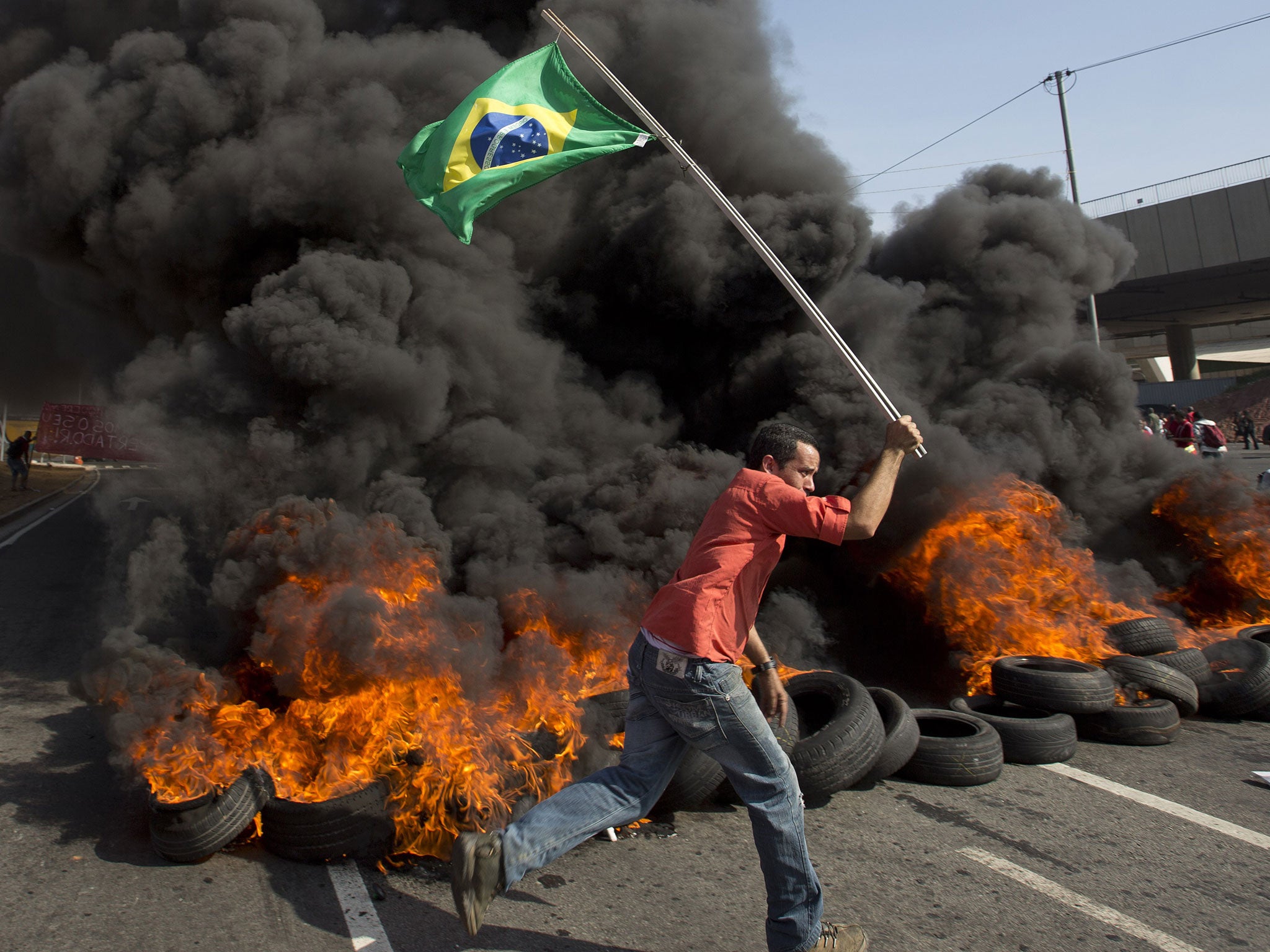Brazil hit by widespread protests in Rio de Janeiro and Sao Paulo as authorities send troops to Recife ahead of World Cup

Your support helps us to tell the story
From reproductive rights to climate change to Big Tech, The Independent is on the ground when the story is developing. Whether it's investigating the financials of Elon Musk's pro-Trump PAC or producing our latest documentary, 'The A Word', which shines a light on the American women fighting for reproductive rights, we know how important it is to parse out the facts from the messaging.
At such a critical moment in US history, we need reporters on the ground. Your donation allows us to keep sending journalists to speak to both sides of the story.
The Independent is trusted by Americans across the entire political spectrum. And unlike many other quality news outlets, we choose not to lock Americans out of our reporting and analysis with paywalls. We believe quality journalism should be available to everyone, paid for by those who can afford it.
Your support makes all the difference.With less than a month to go until the World Cup, the Brazilian government has sent in the tanks to restore order amid protests against the cost of hosting the international football competition.
Federal troops arrived in the World Cup host city of Recife on Thursday, where state police are on strike demanding better pay, to pacify the city following reports of looting and street violence.
"They are obviously using the proximity of the World Cup to pressure us to give into their demands," said government press officer Manoel Guimaraes for the state of Pernambuco, home to Recife, who did not specify the number of troops involved in the operation.
In Sao Paulo, which will host the opening game of the World Cup between Brazil and Croatia, protesters cut off access to the Avenida Paulista, coinciding with the morning rush hour, as police moved in to secure the main entrance to new stadium, Arena Corinthians.
"Our goal is symbolic. We don't want to destroy or damage the stadium," said Guilherme Boulos, head of the Homeless Workers Movement. "What we want are more rights for workers to have access to housing and to show the effects the Cup has brought to the poor."
In Sao Paulo alone, 27 people were arrested, 20 of them carrying Molotov cocktails, according to local media reports.
Meanwhile, in Rio de Janeiro, riot police used tear gas to break up protests as thousands took to the street demanding better housing and health care, adding to security concerns ahead of the World Cup. Rio will host the final match on 13 July.
In the capital Brasilia, protesters carried banners reading "FIFA Go Home". Demonstrations also hit Belo Horizonte, Porto Alegre, Fortaleza, Salvador and Campinas.
The Brazilian government downplayed the prospect of renewed violence after Thursday's protests, insisting that there is "no reason to panic" ahead of the tournament.
"I’ve seen nothing that is related to the (World) Cup," said Brazilian Sports Minister Aldo Rebelo. "There’s no reason to panic ahead of receiving 3 million Brazilian tourists and 600,000 foreign tourists."
Many Brazilians are angry at the billions spent to host the World Cup. Protesters have said the government should focus spending instead on improving Brazil's health care, education, security and infrastructure systems.
Brazilian leaders had hoped the World Cup and then the 2016 Olympics in Rio would put a favourable spotlight on the country, showing advances over the past decade in improving its economy and pulling tens of millions out of poverty.
Additional reporting PA
Join our commenting forum
Join thought-provoking conversations, follow other Independent readers and see their replies
Comments